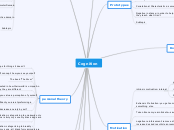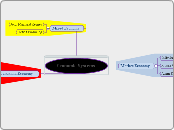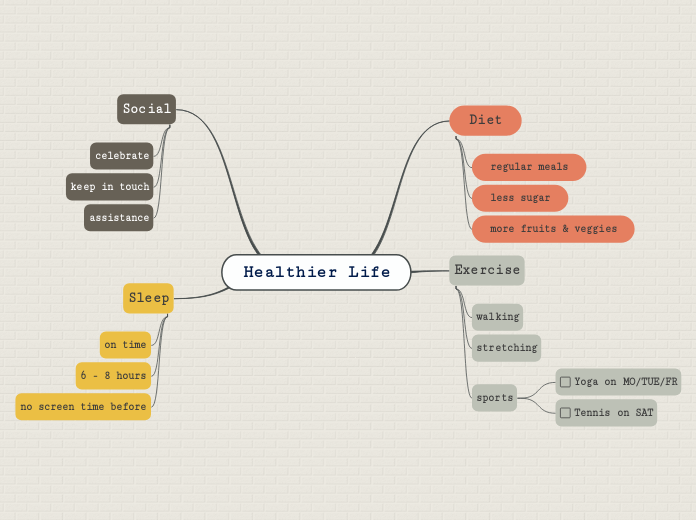Cognition
BRAIN
Plasticity: your brains ability to adapt:
ex: learning a new language
giving a physical cue, instead of just
more time
Visual Reality: forms an image. When it hasn't been used, it is hard to use.If you make visual connections you retain info better.
if something isn't developing well,
it is hard to make things stick=
use multiple ways to learn
Individual Physical State: knowing when you are
getting a headache, tired, etc.
Found out by cueing, seeing difficulties, observing
ex: anxiety: starts in the body: turn red, bite nails
Negative Transfer: take what you learned and
apply it uncorrectly
positive transfer: take what you learned and
apply it elsewhere
does having something that you didn't have
before change the way the brain works? Does it make life to overwhelming does it become possible to decrease the overwilling effect
Attribution Theory
stable vs unstable
internal vs external
controllable vs uncontrollable
my personal Theory
Our brain fills in the gaps to better understand the world around us
personal theory
Over generalization: categorizing to broadly: all
blondes are my sons, all black furry animals are
dogs
Undergeneralization: categorizing too narrowly
only one of my sons is truly my son
only black dogs are dogs
self regulation: can decrease anxiety by self regualting
Self efficacy: how confident you are at preforming a task
Self Esteem: how you value a perception of yourself
Personal Fable: rooted in how their world is unique
An explanation of why they are different
The book "The Giver"
Self concept: how you see yourself
your brain fills in the gaps for things it doesn't understand
our own ideas about how the world works
Domains
Thinking-cognitive domain
Vygotski
Piaget
Physical: Psychomotor Domain
To whistle: do you have a tongue
Emotional- affective domain
Phycomotor: mind talks to body to get things done
Affective: emotional part: personalize
Constructivism: piaget and Vygotsky: learning
Control Language: do this
Informational language
Zone of Proximal Development
Social
Planning Lessons
Disequilibrium: mental state of discomfort:
can lead to curiosity or debilitating anxiety
Affective domain: emotional response
Cueing: ex. push a plate towards a baby to get her to eat
Situational Interest: why we create
advertisements
Scaffolding: ex. sing next to them so they can sing the right pitch
zone of proximal Development:
learning while stretching
Undergeneralization: over categorization
Civil Rights is not just for
blacks, it also includes
women's rights
Eric Erickson
intimacy vs isolation
identity vs role confusion
industry vs inferiority
initiative in social situations vs guilt
autonomy vs shame and doubt
Trust vs mistrust
Motivation
Moral Delima:
Should I share
Questions are:
Good girl-should I share
Personal Interest: I want to
keep the gum for myself
Social Contract: friends are
supposed to share
Will to power: individuals want to be in
charge of their environment (esp. boys)
Positive Reinforcement: adding a stimulus
to increase target behavior
Punished by rewards: how
do we function w/o giving
people praise
negative reinforcement: remove stimulus-
food to increase desired result-clean room
Token Economy: earn tickets= save up
for screen time
Extrensic Motivation: you get something
for doing something else
intrinsic motivation: internal
Someone will help you
increase self-efficasy
give choices
Kolburg Moral Development Stages
Universal Ethical principle
Social Contract
post conventional
Law and Order morality
Good boy/girl
social convention
Exchange favors
Punishment vs Reward/ obedience
pre-conventional
Prototypes
Negative instance: in order to help teach what it
is, they teach what it isn't
Correlational Characteristics: sometimes present
Defining Characteristic: shown in all instances
positive instances: a good first example of a catagory
prototype: a best first example
Anxiety
State anxiety: you create anxiety for someone else
Debilitating Anxiety: can't Function
Hot Cognition: Extreme action to get attention
passing around a lampshade
made of Jewish skin
Phatic Communication: physical touch that can
lower anxiety
High Trait Anxiety: your anxiety can
increase and can lead to debilitating anxiety
Trait Anxiety: how anxious a person you
are in every day life
Subtopic









